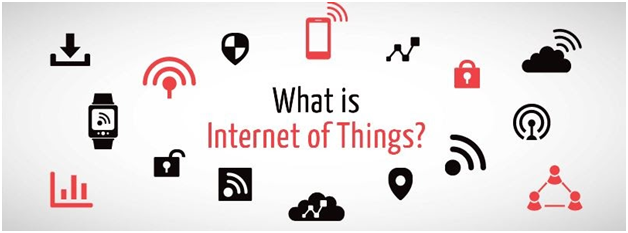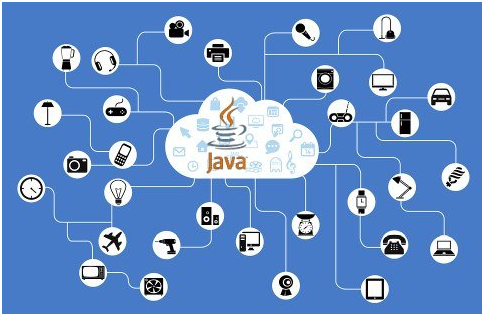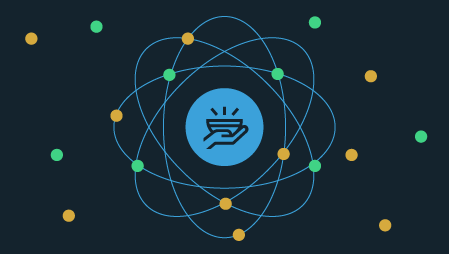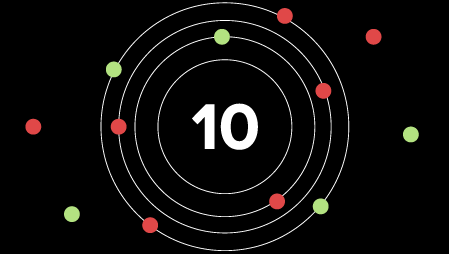Java is the most widely used programming language across the world and the successful language in IT. This programming language owes its runaway accomplishment to WORA (write once, run anywhere), a significant feature that eliminates the platform dependencies during application execution.
However, its popularity was somehow diminished with the rise of other advanced programming languages. But it again gained its momentum surprisingly with the development of the Internet of Things (IoT).
And as per the developer stat, Java has 52% more respondent rating than Python, C, and C++ as the choice of programming languages and utilizing for IoT framework Development.
Through this article, I will be discussing the benefits of Java in IoT Systems Development and how it is useful in the development of IOT systems.
Let’s get started.
What Is the Internet of Things (IoT)?

The IoT is the idea of connecting devices to the internet and other associated gadgets in some way. The Internet of Things is a massive network of connected individuals, computing devices, machines, and among other things.
Every one of these things has their unique identifiers (UIDs) and have the capacity to gather and share data over various networks without the need of a human to a PC or human to human interaction.
The Internet of Things has acquired gigantic fame with the development of data analytics and BI, AI, and machine learning.
IoT and Java
The idea is fascinating — particularly for those planning to make a blast out with this next big technology.
Java has been the backbone for most of the technologies that have arisen, and it’s not an exception in IoT. However, the question for those planning to change to the IoT is about programming languages.
Many programming languages can be applied for IoT, similar to C, C++, Python, and more. So, you can hire java developers as Java offers an edge to programmers that is unparalleled. One of the fundamental reasons IoT developers incline toward Java is because of its adaptability and flexibility.
What are the Top Benefits of Using Java for IoT?
With the use of Java Embedded for the Internet of Things, the users will see countless advantages that this reaps in the business world.
#1 Get an Enhanced Experience
With the use of Java Embedded, the devices become more proficient in exchanging data and utilizing the information when and where it is required. So the device turns out to be more integrated.
#2 Platform Independency
While building up an embedded application, you need to think about the real-time OS, processor, and various protocols to connect devices. A platform-independent language like Java sums up all these components and helps programmers write the code once and run it anywhere.
The developed Java IoT application can run on various hardware devices and platforms without changing the code. It makes the deployment of IoT with Java more effective and less unwieldy.
#3 Enhanced Life-cycle of the Product
The product can update itself as per the changes coming up in the market and manage itself with these changes with no glitch.
#4 Increased Reach of the Market
The products or items’ market reach is fabulous because it can re-utilise common modules across different domains.
#5 Has Control over Roadmap and BOM
Different types of hardware devices support Java. Thus there is the ease of portability. Any sort of device can run the program, making it structure a simple network with all the devices.
#6 Extensive APIs
Internet and Java programming offers its users the benefit of over 4,000 libraries, covering all IoT programming requirements from concurrency to networking. The API requires minimal or no rewriting, which leads to quick code execution and development of the IoT app.
How is Java Useful in IoT System Development?

As written above, IoT devices share and collect information at various touchpoints. These touchpoints are built with an embedded application that is used as substantial connectivity.
One of the best reasons for Java’s popularity is that it is highly flexible and reliable and can be accessed from anywhere. The Internet of Things is not a single technology.
It is a combination of technologies including big data, cloud computing, M2M collaboration, sensors, computing and hardware devices, which makes Java the best choice to bring all devices together.
Another major factor that makes Java application programming so useful in IoT programs is that it includes a vast library of application process interfaces (APIs).
The best feature is that you can use existing APIs instead of creating new code from scratch when building embedded applications.
Moreover, an application built in Java faces fewer problems during application updation. Also, in the 90s, Java started writing applications for PDAs, which were themselves embedded devices.
Java & IOT: A Perfect Combination
Java provides ubiquitous connectivity power and constantly evolving capabilities, making it the most preferred programming language for IoT devices and systems.
- Java-powered IoT devices are more effective at exchanging and retrieving information. The use of Java makes IoT devices more integrated.
- Java has the capability of automatic upgrading, which makes it cost effective and an excellent option for IoT systems.
- Java re-uses modules through various domains and has an excellent market reach of millions of developers and end-users worldwide.
- Java is portable, supported by various hardware, and provides secure connectivity, making it much better for IoT systems.
Wrapping Up
Implementation of IoT requires many considerations, as it deals with multiple data streams, and that’s where Java comes into the picture. Java’s versatility, flexibility, and reliability allow it to adapt to IoT system development with minimal resources and efforts.
And if you are looking forward to implementing Java and the Internet of Things, you must hire a java web development company. They will help you create sensors and automated devices that process their data by using Java programming.
This is the best time to find out the true potential of Java and the Internet of Things as IoT using Java is the future!




